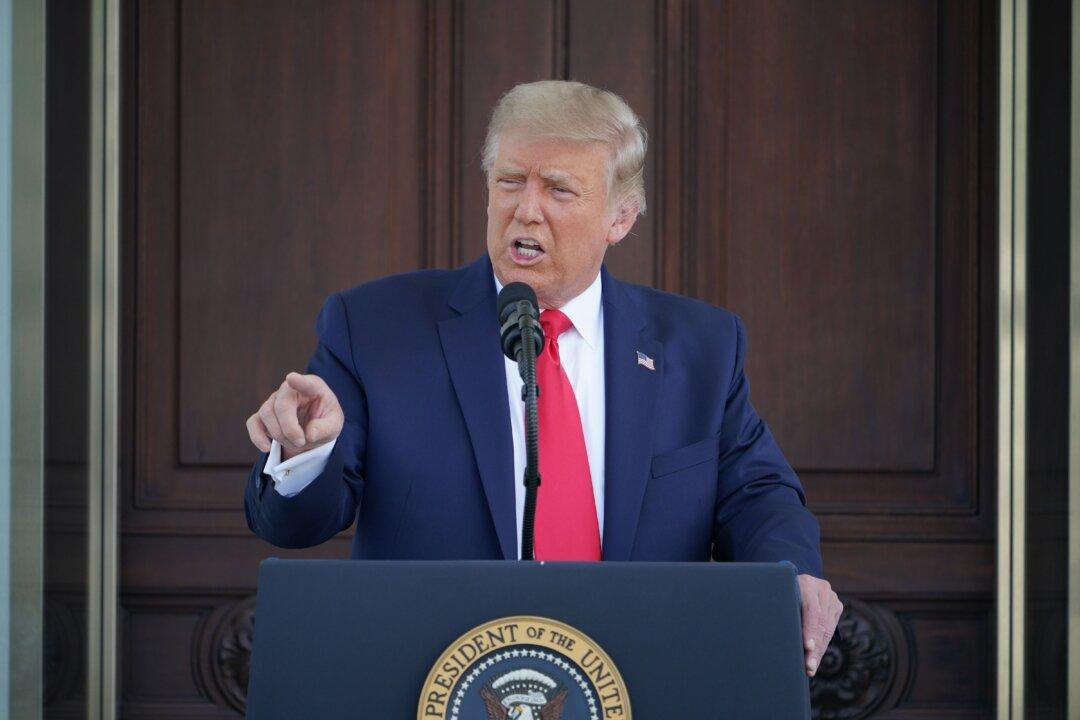WASHINGTON—As the election draws near, President Donald Trump has increasingly taken aim at Beijing, raising the necessity of decoupling, a term that recently gained popularity to describe an economic breakup with the world’s second-largest economy.
“Whether it’s decoupling or putting in massive tariffs like I’ve been doing already, we’re going to end our reliance on China because we can’t rely on China,” Trump said on Sept. 7 during a press conference at the White House.





